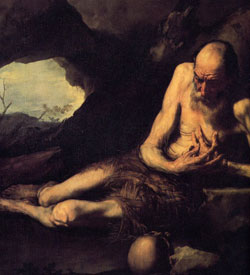We ask you, urgently: don’t scroll past this
Dear readers, Catholic Online was de-platformed by Shopify for our pro-life beliefs. They shut down our Catholic Online, Catholic Online School, Prayer Candles, and Catholic Online Learning Resources—essential faith tools serving over 1.4 million students and millions of families worldwide. Our founders, now in their 70's, just gave their entire life savings to protect this mission. But fewer than 2% of readers donate. If everyone gave just $5, the cost of a coffee, we could rebuild stronger and keep Catholic education free for all. Stand with us in faith. Thank you.Help Now >
Pope's Homily on the Martyr / King St. Wenceslaus
FREE Catholic Classes
This great saint, whom you are pleased to call the 'eternal' Prince of the Czechs, invites us always to follow Christ faithfully, he invites us to be holy.
Highlights
Stará Boleslav, Czech Republic (Catholic Online) - We present the Holy Father's Homily to the faithful who gathered for his final Mass in the Czech Republic. It is no accident that this is the Feast of the great Christian King, the martyr Saint Wenceslaus. The Pope has been reflecting during the entire visit upon the essential and integral influence of Christianity on the history, and the future, of Europe:
*****
HOMILY of POPE BENEDICT XVI
This morning, we are gathered around the altar for the glorious commemoration of the martyr Saint Wenceslaus, whose relics I was able to venerate before Mass in the Basilica dedicated to him. He shed his blood in your land, and his eagle, which - as the Cardinal Archbishop has just mentioned - you chose as a symbol for this visit, constitutes the historical emblem of the noble Czech nation. This great saint, whom you are pleased to call the "eternal" Prince of the Czechs, invites us always to follow Christ faithfully, he invites us to be holy. He himself is a model of holiness for all people, especially the leaders of communities and peoples. Yet we ask ourselves: in our day, is holiness still relevant? Or is it now considered unattractive and unimportant? Do we not place more value today on worldly success and glory? Yet how long does earthly success last, and what value does it have?
The last century - as this land of yours can bear witness - saw the fall of a number of powerful figures who had apparently risen to almost unattainable heights. Suddenly they found themselves stripped of their power. Those who denied and continue to deny God, and in consequence have no respect for man, appear to have a comfortable life and to be materially successful. Yet one need only scratch the surface to realize how sad and unfulfilled these people are. Only those who maintain in their hearts a holy "fear of God" can also put their trust in man and spend their lives building a more just and fraternal world. Today there is a need for believers with credibility, who are ready to spread in every area of society the Christian principles and ideals by which their action is inspired. This is holiness, the universal vocation of all the baptized, which motivates people to carry out their duty with fidelity and courage, looking not to their own selfish interests but to the common good, seeking God's will at every moment.
In the Gospel we heard Jesus speaking clearly on this subject: "What will it profit a man, if he gains the whole world and forfeits his life?" (Mt 16:26). In this way we are led to consider that the true value of human life is measured not merely in terms of material goods and transient interests, because it is not material goods that quench the profound thirst for meaning and happiness in the heart of every person. This is why Jesus does not hesitate to propose to his disciples the "narrow" path of holiness: "whoever loses his life for my sake will find it" (16:25). And he resolutely repeats to us this morning: "If any man would come after me, let him deny himself and take up his cross and follow me" (16:24). Without doubt, this is hard language, difficult to accept and put into practice, but the testimony of the saints assures us that it is possible for all who trust and entrust themselves to Christ. Their example encourages those who call themselves Christian to be credible, that is, consistent with the principles and the faith that they profess. It is not enough to appear good and honest: one must truly be so. And the good and honest person is one who does not obscure God's light with his own ego, does not put himself forward, but allows God to shine through.
This is the lesson we can learn from Saint Wenceslaus, who had the courage to prefer the kingdom of heaven to the enticement of worldly power. His gaze never moved away from Jesus Christ, who suffered for us, leaving us an example that we should follow in his steps, as Saint Peter writes in the second reading that we just heard. As an obedient disciple of the Lord, the young prince Wenceslaus remained faithful to the Gospel teachings he had learned from his saintly grandmother, the martyr Ludmila. In observing these, even before committing himself to build peaceful relations within his lands and with neighbouring countries, he took steps to spread the Christian faith, summoning priests and building churches. In the first Old Slavonic "narration", we read that "he assisted God's ministers and he also adorned many churches" and that "he was benevolent to the poor, clothed the naked, gave food to the hungry, welcomed pilgrims, just as the Gospel enjoins. He did not allow injustice to be done to widows, he loved all people, whether poor or rich". ...
Wenceslaus died as a martyr for Christ. It is interesting to note that, by killing him, his brother Boleslaus succeeded in taking possession of the throne of Prague, but the crown placed on the heads of his successors did not bear his name. Rather, it bears the name of Wenceslaus, as a testimony that "the throne of the king who judges the poor in truth will remain firm for ever". This fact is judged as a miraculous intervention by God, who does not abandon his faithful: "the conquered innocent defeated the cruel conqueror just as Christ did on the cross" (cf. The Legend of Saint Wenceslaus), and the blood of the martyr did not cry out for hatred or revenge, but rather for pardon and peace.
Benedict XVI, Homily - Mass at Stará Boleslav
September 28, 2009
---
'Help Give every Student and Teacher FREE resources for a world-class Moral Catholic Education'
Copyright 2021 - Distributed by Catholic Online
Join the Movement
When you sign up below, you don't just join an email list - you're joining an entire movement for Free world class Catholic education.

-

-
Mysteries of the Rosary
-
St. Faustina Kowalska
-
Litany of the Blessed Virgin Mary
-
Saint of the Day for Wednesday, Oct 4th, 2023
-
Popular Saints
-
St. Francis of Assisi
-
Bible
-
Female / Women Saints
-
7 Morning Prayers you need to get your day started with God
-
Litany of the Blessed Virgin Mary
Vatican City Leads the Way in Ethical Artificial Intelligence Regulation
-

Rising from the Ashes: Southern California's Wildfire Tragedy Sparks Resilience and Hope in the ...
-

Catholic Medical Group Challenges Biden Administration Over Emergency Room Abortion Mandate
-
FDA Proposes New Front-Facing Nutrition Labels to Promote Healthier Choices
-
Introducing 'Journey with the Messiah' - A Revolutionary Way to Experience the Bible
Daily Catholic
 Daily Readings for Wednesday, January 15, 2025
Daily Readings for Wednesday, January 15, 2025 St. Paul the Hermit: Saint of the Day for Wednesday, January 15, 2025
St. Paul the Hermit: Saint of the Day for Wednesday, January 15, 2025 Prayer for a Blessing on the New Year: Prayer of the Day for Tuesday, December 31, 2024
Prayer for a Blessing on the New Year: Prayer of the Day for Tuesday, December 31, 2024- Daily Readings for Tuesday, January 14, 2025
- St. Felix of Nola: Saint of the Day for Tuesday, January 14, 2025
- St. Theresa of the Child Jesus: Prayer of the Day for Monday, December 30, 2024
![]()
Copyright 2024 Catholic Online. All materials contained on this site, whether written, audible or visual are the exclusive property of Catholic Online and are protected under U.S. and International copyright laws, © Copyright 2024 Catholic Online. Any unauthorized use, without prior written consent of Catholic Online is strictly forbidden and prohibited.
Catholic Online is a Project of Your Catholic Voice Foundation, a Not-for-Profit Corporation. Your Catholic Voice Foundation has been granted a recognition of tax exemption under Section 501(c)(3) of the Internal Revenue Code. Federal Tax Identification Number: 81-0596847. Your gift is tax-deductible as allowed by law.







 Daily Readings for Wednesday, January 15, 2025
Daily Readings for Wednesday, January 15, 2025 St. Paul the Hermit: Saint of the Day for Wednesday, January 15, 2025
St. Paul the Hermit: Saint of the Day for Wednesday, January 15, 2025 Prayer for a Blessing on the New Year: Prayer of the Day for Tuesday, December 31, 2024
Prayer for a Blessing on the New Year: Prayer of the Day for Tuesday, December 31, 2024

